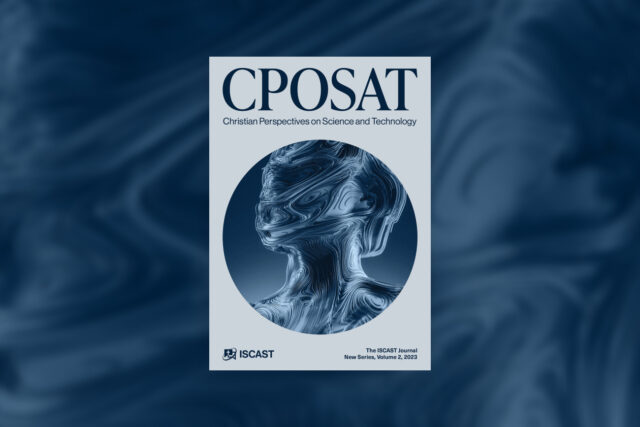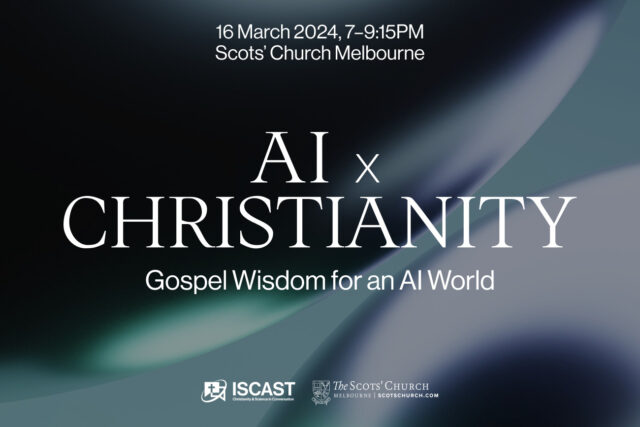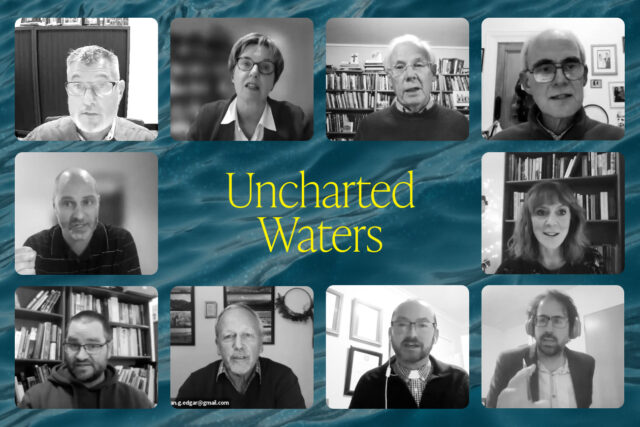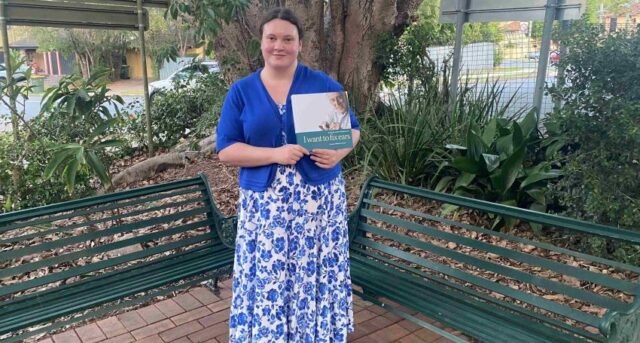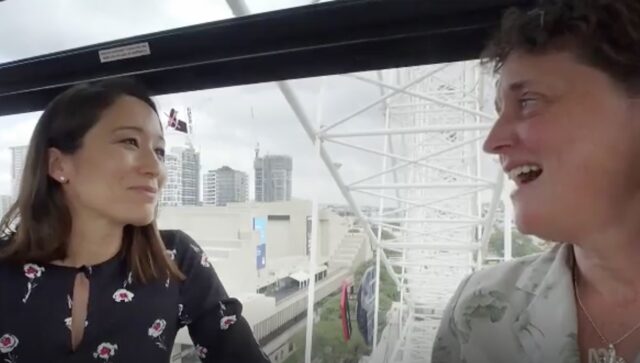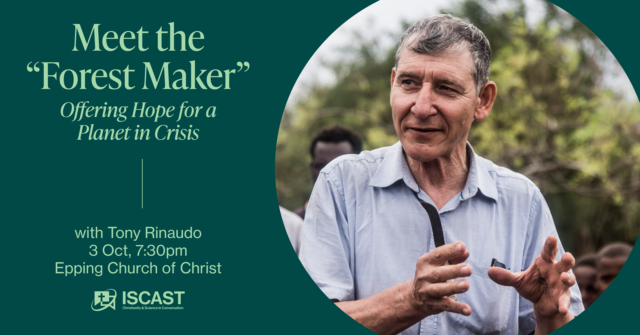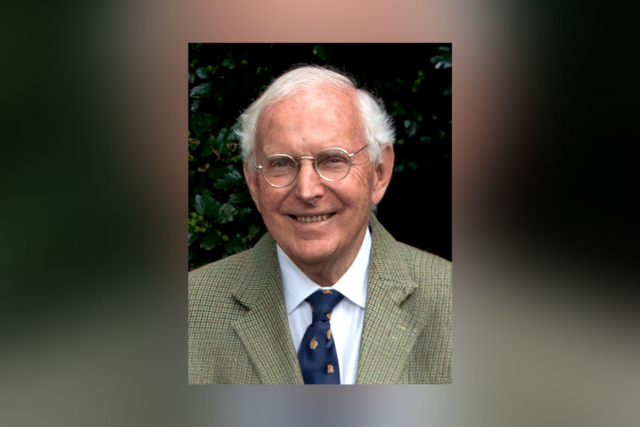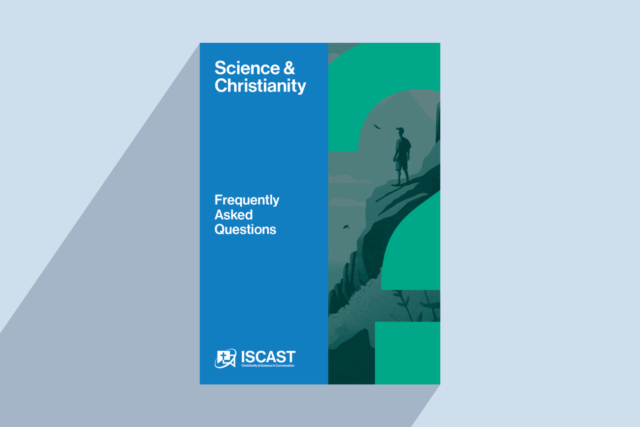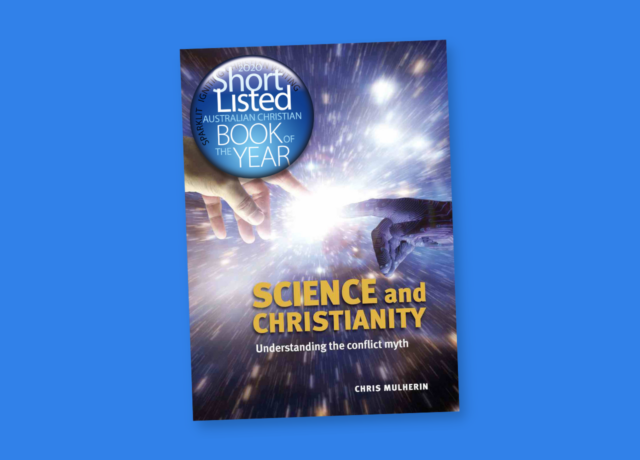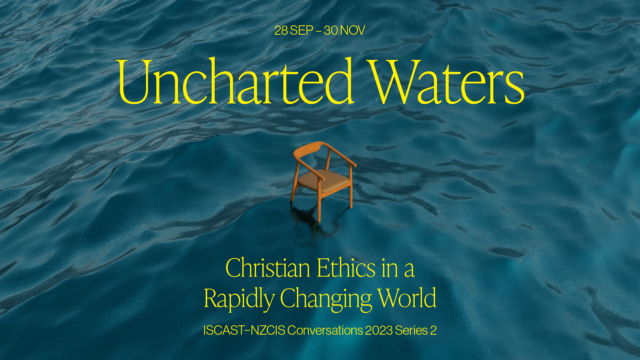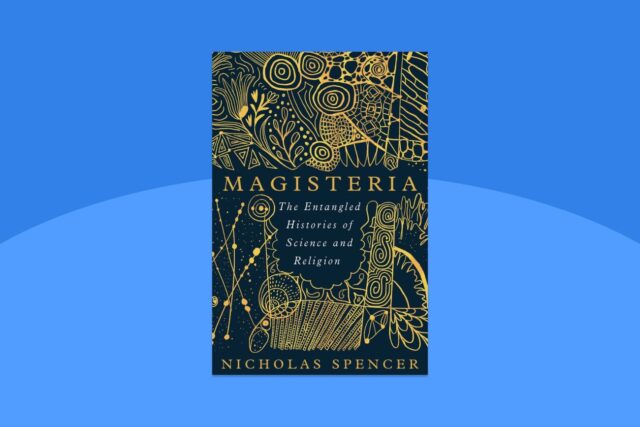


Discussion Paper on Future Directions 2007
John R Pilbrow, 2007
Download PDF
Discussion Paper on Future Directions 2007
Prepared by Prof John R Pilbrow
President of ISCAST 2006-9
Arising from Brainstorming 2006
Always be ready to make your defence to anyone who demands from you an accounting of the hope that is in you; yet do it with gentleness and reverence.
1Peter 3:15b-16a NRSV
This document was circulated as a Discussion Paper to ISCAST Members in 2007 following extensive Brainstorming in Adelaide, Brisbane, Canberra, Melbourne and Sydney from March-November 2006
TABLE OF CONTENTS:
1. INTRODUCTION… 3
1.1. Preamble.. 3
1.2. Setting Goals & Priorities.. 5
2. RECOMMENDATIONS FOR THE FUTURE OF ISCAST.. 6
· SUMMARY OF BRAINSTORM DISCUSSION MAR-NOV 2006.. 10
3. WHERE OUR EXPERTISE LIES – Science-Faith Issues.. 10
3.1. Hermeneutics.. 10
3.2. Philosophy of Science.. 10
3.3. Technology.. 10
3.4. Creation Theology.. 10
3.5. Evolution & The History of Life on Earth.. 10
3.6. In The Image of God.. 11
3.7. Providence, Theodicy & God’s Action.. 11
3.8. Medicine – Cloning, Stem Cells & The Human Genome.. 11
3.9. Ecology & Sustainablility.. 11
4. CHALLENGES AND OPPORTUNITIES:. 12
4.1. Interaction with the Churches.. 12
4.2. Theological Education:. 12
4.3. Other Opportunities.. 13
4.4. Interaction with the Wider Community & the Media.. 13
4.5. Scholarly Writing:. 13
4.6. Preparation of Materials:. 13
4.7. Public Lectures:. 13
5. PUBLICATIONS & COMMUNICATION: How we make ourselves known.. 14
5.1. Bulletin.. 14
5.2. Website.. 14
6. COSAC2007 AND BEYOND: Reaching out in depth.. 15
7. LINKS WITH OTHER ORGANISATIONS: Potential for Cooperation.. 15
8. MANAGEMENT, ADMINISTRATION & FUNDING:. 16
8.1. Board.. 16
8.2. Membership of ISCAST.. 16
8.3. Contribution & Role of Chapters.. 17
8.4. Professional Role of Fellows.. 17
8.5. Financial 17
8.6. Administration:. 18
9. CONCLUSION… 18
APPENDIX I:- ISCAST Ltd – Extract from Memorandum of Association.. 20
APPENDIX II:- By-Laws.. 24
1. INTRODUCTION
1.1. Preamble
This discussion paper is the result of my meetings with Fellows and Associates in Adelaide, Canberra, Melbourne, Sydney and Brisbane during the period March-November 2006. One-on-one meetings were also held with three Fellows and a detailed response to the Brainstorm meeting in Melbourne was received from a person on the ISCAST Vic mailing list.
ISCAST Ltd. was established in 1988 as a Company Limited by Guarantee. It is bound by the Articles and Memorandum of Association as an organisation committed to a Biblical Christian position [Memorandum 4].
The Articles and Memorandum of Association provide scope for broad areas for debate and dialogue. Indeed, we in ISCAST we treasure the freedom we have to discuss a wide range of issues and ideas. An Appendix is devoted to consideration of the extent to which the main functioning clauses from the Memorandum of Association have been fulfilled and the degree to which they adequately cover present and future envisaged ISCAST activities. A further Appendix provides comment on By-Laws enacted by the Board. There was no need to comment upon the Articles of Association as they are to do with the legal formalities of the establishment of ISCAST.
ISCAST has come a long way since its foundation. The Biennial COSAC conferences are important events that, regrettably, have not been nearly as well supported in recent years as were the first two held in 1997 and 1999. The Website is well established and well-regarded and now includes the ISCAST On-Line Journal. The Bulletin has served to provide a national identity. Annual ISCAST Lectures in Melbourne, Sydney and Brisbane are assuming increasing importance. Meetings of Chapters in Melbourne, Sydney and Brisbane provide on-going discussion and dialogue amongst members and supporters that supports people in their professional lives. There is scope for regular activity in both Adelaide and the ACT and a need to support our one Fellow in Tasmania. There is no ISCAST presence in WA. So after almost 19 years it is time to take stock and to consider what may be the way forward.
It is important to acknowledge Professor Lawrie Lyons FAA, the Founder of ISCAST, whose vision for an academy of scientists and other scholars who were also Christians, brought into being the organisation to which we now belong. It is also timely to acknowledge the contributions of those down the years who have ensured that ISCAST and its programs have continued:- those who have served on the Board [particularly Professor John White who served as President for about 14 years and A/Prof Robert Stening[1] who has served the Board as Secretary/Treasurer for a similar period], those who have run the Chapters in Melbourne, Sydney and Brisbane and those who have organised COSAC conferences. We must also acknowledge those who have edited the Bulletin, those who established and have managed the Website and its features such as the On-Line Journal. Many, nourished by their involvement in ISCAST, have given talks to church and campus groups.
In terms of promoting the work and role of ISCAST, there was almost universal concern that the acronym ISCAST[2] does not immediately convey who or what we are as an organisation. People on meeting the name ISCAST often ask “What’s that?”. The sub-title often now used, Christians in Science and Technology, is proving helpful in explaining to people simply what ISCAST is about. Nevertheless, ISCAST as a ‘brand name’ is known. While some suggested we need a new brand name, ultimately what emerged was an urgent need for appropriate up-to-date publicity including profiles of all Fellows to be placed on the ISCAST Website. This was considered to be an important way to make known the range of expertise to be found amongst ISCAST Fellows.
ISCAST has benefited enormously from the visits and lectures by John Polkinghorne, John Bryant, Sir John Houghton, Sam Berry, Bob Russell, Owen Gingerich, Colin Russell, George Ellis and Darrel Falk. All have in different ways challenged us to think outside our comfort zones, to be willing to confront hard issues and to admit that there will always be limitations to our knowledge and understanding. Notwithstanding, the time has come to move from a situation that appears to be a one-way traffic from overseas, to a situation where we are providing some traffic the other way.[This implies that people are receiving invitations and/or receive funding to attend overseas conferences]
Then there is the question as to whether having become a de facto science-faith organisation, the time has come to engage with other disciplines to a greater extent than in the past. However, we must avoid treading on territory covered by other organisations such as ZADOK or CASE that have carved out particular niches for their activity.
Many identified that we are missing a generation in ISCAST and wonder what can be done to locate and invite them to become involved. Detailed information is not available but it seems that those who graduated in the 1970’s and 1980’s are not as evident in our membership as we might have expected.[3]
We believe that we have a perspective on science-faith issues that we need to bring to both the church and the community. We should make it our business to cultivate those amongst our membership with particular expertise and capacity to communicate with the wider world.
ISCAST has counterparts in other parts of the world, in particular, Christians in Science [CiS] in the UK and the American Scientific Affiliation [ASA] in the USA.
ISCAST is listed on the Creation Ministries International[4] [CMI] Website along with ASA, CiS and RTB [Reasons to Believe] as promoting the idea that science is to be found outside the bible. That means we have been getting our message across.
During a visit to the UK during March and April I was able to meet with key representatives of Christians in Science [CiS], the Faraday Institute and the Ian Ramsey Centre in Oxford. The different models for operating in the science-faith interface represented by these organisations merit consideration as we consider future options for ISCAST. Christians in Science hold an annual conference (and this year this will be in conjunction with the American Scientific Affiliation), they employ a part-time Development Officer who coordinates the dozen or so local groups around the UK. At the Scholarly level, CiS publishes the journal, Science and Christian Belief. The Faraday Institute, established at the beginning of 2006, runs weekend courses and longer summer courses for different groups such as secondary teachers. It was established with funding from the Templeton Foundation, employs a full-time Course Director and two or three administrative staff. The Ian Ramsey Centre in Oxford undertakes long-term projects, which involve appointment of research fellows, all of which so far have been funded by the Templeton Foundation.
As scientists and professionals who are also Christians, we also need to reflect on the vocational aspect of our work. An important and interesting question was posed, as to whether we are primarily following a vocation assuming there is a creator or alternatively trying to find evidence from science for belief in God. Perhaps some combination of both is appropriate.
This discussion paper is presented in an attempt to help steer us in some new directions. I commend the findings of the Brainstorm process and the recommendations for future action and decision making to all Fellows and Associates of ISCAST for their consideration and feedback prior to the Meeting of Fellows that will take place at the conclusion of COSAC2007.
1.2. Setting Goals & Priorities
In setting out to establish new goals and priorities, we need to identify our strengths and weaknesses. Strengths are found in the people who are already involved in ISCAST. A current weakness is that we don’t have a complete picture of what our members are doing or could do and this requires the preparation of brochures and web-based information regarding Fellows. There is an opportunity to develop resources regarding science-faith issues in general and topics such as interpretation of scripture and creation theology, in particular – for the churches, the general public and at the scholarly academic level.
We in ISCAST are incredibly privileged people well educated and/or informed about modern science and who also take Christian faith seriously. My COSAC’07 lecture “To Whom Much is Given, Much will be Required” will articulate many of the issues and challenges before us and urge us to look to the future. How we do things will be as important as what we say.
We can sum up our fundamental task as being to provide a bridge between the world of science and the church, in the first place, and secondly, to represent good science and Christianity to the community, and to identify and challenge shoddy lines of argument used within and outside the churches. If we don’t succeed in these things, we will be abdicating our role to movements propagated under names such as creation science or intelligent design. That is, if we don’t provide a balanced viewpoint for the churches and community there will continue to be a lot of misinformation out there. Is this what we want? We should consider the consequences for the church if our voice is not heard on the kinds of issues raised in this paper[5].
ISCAST is at a point in its history when a review of past activity is needed coupled with development of plans and directions for the future. However, we are at a crossroads where we need to consider the opportunity to grow in size and influence. ISCAST can continue pretty much as it does now and simply maintain the status quo, or we can chart an exciting and challenging way forward that will involve much effort and the involvement of the majority of our Fellows and key Associates. If we only maintain the status quo we will be in danger of becoming a shrinking organisation that will have little or no impact.
In ISCAST we need to find ways to be leaders in the science-faith area so that our work is positive and forward looking even though from time-to-time we may need to respond to issues generated elsewhere.
What kind of organisation should ISCAST try to become with its present resources and people? What resources are needed to move beyond the status quo? Assuming that there will be a desire to adopt some new, intentional goals and priorities, there will be administrative and financial implications that will have to be thought through. It seems obvious that to achieve such a future, consideration must be given to some level of paid administration and the establishment of an ISCAST Office. In the short term there needs to be exploration of what would be involved in obtaining a 1300 or 1800 number to ensure that people could telephone ISCAST during working hours and have somebody available to answer. While management entirely by volunteers is a noble aim, it is unrealistic if ISCAST is to move forward.
The issue will then be how to encourage, cultivate and manage growth in activities and projects. The control of ISCAST must remain with the Fellows, as required by the Articles and Memorandum of Association, even were we to attract significant donor funding.
2. RECOMMENDATIONS FOR THE FUTURE OF ISCAST
Proposed ISCAST Mission Statement:- To provide a bridge between the world of science and the church and community.
These recommendations have been compiled from the many inputs received during the brainstorm sessions held during 2006. They reflect matters of varying degrees of urgency and importance that I believe should be discussed, debated and be firmly on our agenda. Here I am not being critical of what we have done in the past, rather I am trying to help us focus on those things that should ensure a healthy future for ISCAST as a servant of both church and community.
1) BOARD
a) That the Board review the broad agenda for ISCAST taking into account feedback from Fellows and Associates.
b) That the Board encourage the establishment of Chapters in both Canberra and Adelaide.
[This would provide the minimum on-going local organisation that could arrange occasional meetings and be in a position to promote and organise lectures by prominent speakers in the science-faith arena.]
c) That the Board explore the establishment of a Chapter in Western Australia.
d) That the Board investigate opportunities for ISCAST to reach out to regional centres and to ascertain the financial and other implications of so doing.
e) That the Board and Chapters continue to seek out suitably qualified people as Fellows.
f) That the Board ensure that appropriate ISCAST Fellows are nominated for major national committees as opportunity arises[6]
[It has been pointed out that ISCAST has fewer academics in strategic positions within its ranks than in the past and the opportunity for such nominations may not occur very often. This touches on the need for new Fellows to be sought.]
g) That the Board be asked to review COSAC conferences, to investigate why attendances dropped in 2001, 2003 and 2005 and to explore the best locations for future conferences.
h) That the Board explore the topic, timing and location for COSAC2009 in the light of recent developments regarding the possibility of an ATF-Charles Darwin University conference to celebrate the 150th anniversary of Origin of Species during late November 2009[7].
2) CHAPTERS
a) That Chapters be pro-active in seeking opportunities for members of ISCAST to present lectures to church groups, campus groups, senior school students, church leaders and clergy.
[While we must establish and maintain theological respectability, local groups and organisations should be encouraged to turn to ISCAST for speakers as there are perfectly good people in all main centres except for Perth.]
b) That financial statements provided to the Board by Chapters at the end of each year be audited.
3) ISCAST MATERIALS AND PUBLICATIONS
a) That the Board and the Chapters maintain a watching brief on key issues for discussion, lecturing, writing and publication.
b) That ISCAST materials, lectures and presentations should be developed at broadly three levels:-
(1) Scholarly level – Senior Scientist/Theologian – ‘On-Line’ Journal
(2) Level of undergraduate and postgraduate students.
(3) Level of High School students and lay level resources for congregations.
c) That the Board encourage members of ISCAST to prepare materials for churches, teachers (particularly in biology), University and School Chaplains and for parents and children.
[This should only be undertaken after suitable ‘market surveys’ have been conducted to establish the degree to which such materials would be accepted and used]
d) That the Board and Chapters encourage Fellows and Associates with particular qualifications to write scholarly articles for the ISCAST On-Line Journal, Science and Christian Belief and other science faith publications.
e) That the Board and Chapters encourage those Fellows and/or Associates with appropriate qualifications and suitable materials to consider writing books and monographs.
f) That an up-to-date brochure describing ISCAST be prepared, updated at least annually and maintained on the Website.
g) That ISCAST Fellows be asked to submit a Website entry of at least a half page profile with photograph, the format to be developed by the Communications Working Group, and that these entries should appear on the ISCAST Website by the end of 2007.
h) That the Board, Chapters and all Fellows and Associates be asked to ensure that up-to-date information regarding activities undertaken in the science-faith area be included on the Website as a way of advertising what ISCAST is able to offer.
i) That a new Bulletin Editor be identified, otherwise consideration will need to be given to incorporating Bulletin functions onto the Website along with provision for hard copies of relevant material for those without internet access.
4) REACHING OUT
THEOLOGICAL EDUCATION
a) That all members of ISCAST be encouraged to develop their contacts with Theological and Bible Colleges and to be available to assist with discussion and dialogue regarding science-faith issues with staff and theological students through seminars and workshops.
COURSES AND SEMINARS
b) That the Board and Chapters seek opportunities for ISCAST to sponsor and/or participate in short courses, seminars and workshops for identifiable groups or organisations.
OPPORTUNITIES IN THE MEDIA
c) That ISCAST members should seek opportunities to write for church newspapers.
d) That appropriately qualified members of ISCAST seek opportunities to write for the daily papers and to participate in the media.
BOOKSHOPS
e) That all members of ISCAST seek to encourage their local Christian bookshops to stock titles that represent appropriate science-faith perspectives and to remove titles based on faulty science.
PUBLIC LECTURES
f) That the Board shall ensure, wherever possible, that the itinerary for visiting speakers include Adelaide, Hobart and Perth as well as Melbourne, Sydney, Brisbane and Canberra.
g) That the Board and Chapters give consideration to joint sponsorship of public lectures with other organisations without compromising ISCAST principles.
5) MEMBERSHIP & SUBSCRIPTIONS
a) That ISCAST establish uniform subscriptions for each level of membership across the country with an agreed proportion to be held in Board funds
b) That in addition to categories of Fellow and Associate, in order to encourage involvement of younger people, a Student Membership category with a modest annual subscription be introduced nationally[8]. Other categories of membership should also be investigated.
6) FINANCIAL
a) That the Board explore ways and means to increase the level of ISCAST financial reserves and to set a goal to be achieved within five years, such funds to be used for underwriting COSAC Conferences, to support and seed fund major initiatives and to support lecture tours by overseas speakers.
b) That the annual budget presented to the AGM contain new initiatives consistent with the aims and goals of ISCAST.
c) That the Board explore the possibility of Tax Deductible Status for ISCAST to enable applications to be made to Charitable Trusts for particular purposes.
d) That the Board negotiate with the Lyons family regarding future uses of funds from the Hugh Lyons Trust for ISCAST activities.
7) EXTERNAL FUNDING
It is noted that the 1st stage submission for $US30,000 from the John Templeton Foundation for upgrading the Website and its maintenance for a period of five years, submitted recently, has been accepted. Preparation of the full submission will now be undertaken.
a) That consideration be given to making application for a CTNS STARS program award in 2008 and in subsequent years[9].
[It has been pointed out that this needs academics/researchers with projects upon which they will need to spend a considerable amount of time]
b) That the Board invite suggestions for large scale projects that would require funding at the level of $100-200k per year for five years from the John Templeton Foundation.
c) That the Board investigate applications for funding from bodies such as the Australian Research Council [ARC]
8) ADMINISTRATION
That the Board be charged with developing a proposal regarding the establishment of an ISCAST National Office and the appointment of an Executive Secretary[10]. As a first step the Board be asked to investigate the costs and feasibility of obtaining a 1300 or 1800 telephone number that would be answered during working hours and a possible location and associated costs.
[It is recognised that such a proposition has never been looked upon kindly in NSW and, judging by the reaction at the Brainstorm Meeting in Brisbane not there either]. However the purpose of this Discussion Paper and Recommendations is to help ISCAST to move forward.
9) OTHER ORGANISATIONS
a) That the Board maintain appropriate links with other organisations including Christians in Science [UK] and the Australian Science and Theology Network.
b) That the Board explore an appropriate partner relationship with colleagues in NZ.
c) That the Board seek appropriate levels of cooperation with other organisations such as ZADOK and CASE
10) ACTION RECOMMENDATION
That the Board be responsible for implementation of the above recommendations and that it provide a progress report for the 2008 AGM.
· SUMMARY OF BRAINSTORM DISCUSSION MAR-NOV 2006
Sections 3-8 report matters discussed during the various brainstorm meetings held during the period March-November 2006. Some additions resulted from subsequent one-on-one discussions with several ISCAST members during 2007.
3. WHERE OUR EXPERTISE LIES – Science-Faith Issues
The degree of overlap in what the various ‘Brainstorm’ meetings identified as key issues for ISCAST was reassuring because it showed that members of ISCAST were by and large recognising the same issues, the same opportunities. The main topics are listed below, not in any particular priority order. They all provide an on-going challenge, even though much has been done on many of them already. Some of the issues are already represented on our Website. Not only can members of ISCAST contribute to many of these issues, there is a need for many of them to be properly presented to the churches. Consideration of all of these issues comes back to what we can say about the nature of the physical universe and how we relate that to Christian Faith. The challenge for us is to understand what message we have for the churches and the community and how to present our material to those without a scientific background.
3.1. Hermeneutics.
Of fundamental importance is how we read and interpret the Bible in the light of modern science. More dialogue is needed between theologians and those of us who recognise the scientific revolution that has taken place and who work within a contemporary cosmology[11]. We can play a role in reinforcing the need for interpretation of scripture that recognises the literary form of the text, its purpose when written, its universal message and that scripture and science cannot ultimately disagree about the same realities.
3.2. Philosophy of Science
While everyone acknowledged that science works extremely well, there was a call for an on-going critique of scientific methodology, naturalism and reductionism.
3.3. Technology
ISCAST is the Institute for the Study of Christianity in an Age of Science and Technology. Thus exploration of technological issues in the light of Christian teaching and understanding of the world is intrinsic to its purpose. While technological advances are to be welcomed, ISCAST has a responsibility to critique consequential social issues. It was noted that so many in today’s churches want the benefits of science and technology and yet oppose the very science that has makes modern technology possible when it ‘appears’ to conflict with their beliefs.
3.4. Creation Theology
As Christians we recognise that we live in an amazing creation. There is a need to represent the best scholarship in this area from those who have brought their thinking into the 21st Century. Our agenda here should be constructive and support sound views regarding creation theology while avoiding e.g. ‘God of the Gaps’ arguments.
3.5. Evolution & The History of Life on Earth
We are aware that in many Christian circles, people take extreme views on subjects such as evolution and intelligent design[12] that we in ISCAST judge to be poorly informed and to be held in the face of evidence to the contrary. While many wished that we could move on to other matters, it was recognized that we will need to maintain a watching brief for a good while to come and to be ready to provide appropriate responses. The contribution in this area of Dr Graeme Finlay in NZ is noted[13].
There is scope for consideration of design in creation, what is understood by ‘theistic evolution’, nature versus nurture and evolutionary development. More broadly, there is scope for deeper consideration of the impact of Darwin and the current status of thinking on organic evolution in the fields of palaeontology, biology, anthropology, sociology, theology, and in popular culture, Christian and secular.
It was suggested that the general public, including Christians, need to be better informed about the contribution of Geology to our understanding of the earth and its processes. More specifically, people need to be better informed regarding how minerals are deposited leading to fertile soils and new lands, and the role of tectonic plate movement in the occurrence of earthquakes and Tsunamis[14].
3.6. In The Image of God
Modern developments in the mind-brain problem, in particular, and in the neurosciences, in general, challenge us to think clearly about what if means to be human and to bear God’s image in the light of modern understanding in biology and genetics. We in ISCAST need to develop informed views regarding these matters and to have a defendable perspective to present.
3.7. Providence, Theodicy & God’s Action
This will require identifying a basic biblical theology of divine action and theodicy informed by the findings of modern science. In practical terms we all have a stake in how we understand God’s interaction with and involvement in the world through both General and Special Providence and in response to our prayers. The 2004 Tsunami particularly highlighted the need for clear thinking regarding this and other natural disasters15.
3.8. Medicine – Cloning, Stem Cells & The Human Genome
The possibilities regarding cloning and stem cell research from the late 1990’s continues to raise scientific and ethical issues that will be around for a long time to come. We will need to continue to pursue sound ways of thinking through these issues and to keep the dialogue going. We note legislation regarding Cloning & Therapeutic Cloning has been passed recently in both Federal Parliament and by some State Parliaments. We need to remain well-informed about these issues as well as the implications of the knowledge of the Human Genome.
We in ISCAST are indebted to Prof John White for keeping us informed regarding Cloning and Stem Cell research as the Academy Spokesperson on these issues. Dr Brian Edgar is serving a second term on the National Gene Ethics Committee, having been nominated to that position by some ISCAST Fellows.
3.9. Ecology & Sustainability[15].
The growing awareness concerning the environment, global warming and deforestation challenges us as Christians to articulate our role as responsible stewards of the earth. The general issue of sustainability may provide ISCAST with an appropriate large-scale project for which funding from the John Templeton Foundation might be sought.
The above topics are not exhaustive and no doubt others will be added in the future. What is important is that we in ISCAST operate from a sound biblical theological position while at the same time affirming the discoveries of modern science in such a way that we provide an important and much needed bridge between the world of faith and the modern paradigms within which we operate professionally.
4. CHALLENGES AND OPPORTUNITIES:
ISCAST is an association of people committed to a biblical theological perspective and whose members recognise the need for discussions and dialogue of science-faith and other issues within a multidisciplinary framework. Our role can be seen in terms of opportunities and also responsibilities to continue to critique the issues raised in the previous section. While some of what is suggested below already happens, it is time to look across the spectrum of challenges and opportunities first before coming to some agreement regarding priorities. Here we consider some of the ways in which we might engage more effectively and intentionally with the churches, theological and bible colleges, para-church organisations, the community and the media. Finally we recognise the need for many more in ISCAST to become more involved in scholarly writing. ISCAST is well placed to emphasise that a scientific revolution has taken place and that many traditional ways of thinking are no longer appropriate. This is not about watering down essentials of the Christian Faith but of learning to think and talk about it in a credible and honest manner. ISCAST is in a good position to play a significant role in strengthening Christian apologetics s in the face of scientific developments.
The role of ISCAST meetings to nourish our own professional journeys will remain an important on-going role. Yet the need to become more outward looking remains a challenge.
4.1. Interaction with the Churches
· To find effective ways in which ISCAST can provide positive help and support on science-faith issues for Church Leaders, Clergy, Youth Leaders, University Chaplains[16], School Chaplains and Christian Schools.
o Through provision of Speakers for talks/seminars in churches, campus groups etc. who can present a positive picture of the relationship between modern science and Christian faith and who are also capable of reasoned critiques of fundamentalist and anti-intellectual attitudes. We should be pro-active as it may not occur to campus groups or churches to approach ISCAST for speakers. Some fine examples of what is already being done were provided during the Brainstorm sessions..
o Through preparation of resources for teachers at primary and secondary level, for clergy, childrens’ and youth workers in churches, and for children and parents for use at home.
· ISCAST (Vic) has opportunities in Melbourne through the Diocesan Paper, The Melbourne Anglican [TMA]. There may be similar opportunities with other church papers in all of the main centres.
· The use of the ISCAST Website to assist in these tasks is covered later.
4.2. Theological Education:
To encourage Theological Colleges & Bible Colleges[17] to provide scope for discussion of science-faith issues and perspectives within their programs. A special effort will be needed to form on-going links with Principals and Staff of these colleges[18]. This might include one-off seminars, courses, workshops [which for clergy could well be scheduled on weekdays].
4.3. Other Opportunities
- To encourage Christian Bookshops to stock Science-Faith titles that are positive and helpful and to encourage them to remove those titles that are out of step with the evidence. This is something each member of ISCAST can do in their own local situation.
- Provision of short courses and Seminars for particular groups. A recent seminar in Melbourne for CCES/RE teachers sponsored by ISCAST (Vic) is noted.
- It is understood that SU Secondary Schools Science Camps are to be revived in Victoria. ISCAST Fellows and Associates will be well placed to assist with presentations. Such initiatives are to be welcomed.
- Links with other organisations within Australia addressing other important issues in relation to Christianity and culture eg Zadok and CASE but without treading on their traditional territory. Participation in the Australian Science and Theology Network is discussed later.
4.4. Interaction with the Wider Community & the Media
Within the wider community we need to equip members to be able to contribute to the media, provide lectures of wide interest and to seek opportunities for participation in e.g. U3A courses. Our reputation stands to be made by our input into the public arena. Dr Brian Edgar has been on radio in programs such as Encounter and in a discussion with Associate Professor David Young (Melbourne University and ISCAST Vic Annual Lecturer in 2001) on intelligent design[19].
4.5. Scholarly Writing:
· To encourage more articles in the Science-Faith area in our areas of particular expertise e.g. for ISCAST ‘On-line’ journal, Science & Christian Belief and other science-faith journals.
- To encourage those ISCAST Fellows with suitable materials to consider writing books and/or booklets?
- It was recognised that ISCAST could be among trend-setters, not simply followers investing much of our energy in “putting out bushfires.” That is to be pro-active rather than reactive.
4.6. Preparation of Materials:
Perhaps the most important suggestion regarding materials on the Website was that ISCAST materials, lectures and presentations should ideally be developed at broadly thee levels.
· Senior Scientist/Theologian – ‘On-Line’ Journal
· U/g and P/G students
· High School/Lay Level Resources for parishes
4.7. Public Lectures:
Public lectures, including ISCAST Annual Lectures in Melbourne, Sydney and Brisbane, will continue to provide important opportunities to reach out beyond our own networks. The large attendances at the George Ellis lectures in Canberra and Melbourne in 2005 where ISCAST combined with other organisations was clearly successful and may be a model to be pursued when arrangements for future keynote speakers are made. With regard to such events, one needs to consider the subsequent impact.
5. PUBLICATIONS & COMMUNICATION: How we make ourselves known
ISCAST publications and communications activities are the responsibility of the Communications Working Group, largely based in Melbourne. This includes the Editor of the ISCAST On-Line Journal, Bruce Craven, supported by Helen Joynt and Patsy Robertson.
5.1. Bulletin
The Bulletin has played an important role in keeping members informed about what is happening in ISCAST, with personal articles, book reviews and notices of important events. There are many amongst Fellows and Associates who do not have access to the internet and for whom a hard copy of the Bulletin is essential. The present Editor, Mick Pope, has many commitments at the present time and would be pleased if an alternative editor could be found. This raises the question as to whether the Bulletin in its present form is needed. Could its functions be covered through the Website. In that case alternative arrangements would be needed for those without internet access.
5.2. Website
The ISCAST Website is our ‘shop front’ to the world and it is seen to be crucial to our operation and function. It is run and maintained by Stockdale ACS, which also manages ISCAST [Vic] administration. The Board allocates $500 per year for maintenance of the site and to cover any other expenses that might arise and costs that involve Stockdale ACS staff directly. [In 2006 the actual figure reported in the Board Financial Statement was $275].
It is noted that the 1st stage submission for $US30,000 from the John Templeton Foundation for upgrading the Website and its maintenance for a period of five years, submitted recently, has been accepted. Preparation of the full submission will now be undertaken.
Development of the On-Line Journal is regarded as a major step forward. ISCAST Thinklings – a web based initiative that permits interactive dialogue has potential for further development, especially with the hoped for funding from the Templeton Foundation for the Website upgrade.
While Web-based materials will be increasingly of value and immediacy, it is believed there will remain scope for publication of hard copy materials – books and pamphlets. A current example is the involvement of ISCAST (Vic) in co-sponsorship with Acorn Press in Melbourne of John Thompson’s Lecture, Genesis 1-3: Science? History? Theology? as a short monograph.
The Website should make it feasible to develop materials specific for parishes, schools, campus groups, theological colleges etc.. To achieve these sorts of goals and aims, we need to identify resource people and topics to which they could contribute. The Website provides a venue for up-to-date booklists and short book reviews. Some relevant material may be found in recent Bulletins.
There was strong support expressed for us to move immediately to ask all ISCAST Fellows, in the first instance, to provide a profile for the ISCAST Website of say ½ page per Fellow. A format for these web pages must be developed. Such profiles need not be limited to Fellows.
Links to related organisations should be maintained and kept up-to-date. Other links could include ‘No Answers in Genesis’ and Dr Ken Smith’s Websites at the University of Queensland which contain excellent short reviews of books in the science-faith area.
6. COSAC2007 AND BEYOND: Reaching out in depth
COSAC attendances have been [1997~150; 1999~150, 2001~40; 2003~40; 2005~40]. Why the drop? Few young people have attended. Why? A partial answer is that the small attendances in 2001 in Adelaide and 2005 in Canberra involved small local ISCAST communities; COSAC2003 held at Avondale College was designed to help the SDAs (and did).The Board should be encouraged to review the best locations for holding COSAC conferences. Feedback is needed on this matter from Fellows and Associates, from those who have attended COSAC conferences and those who have not.
COSAC2007 spearheaded by contributions from Professor Alister McGrath on the theme What is Reality promises to be a first-rate conference and it is hoped to achieve an attendance as high as 200.
With the exception of COSAC2003, where only local speakers took part, all other COSACs have been built around significant international speakers. We need to continue to encourage presentations from local participants while maintaining a sensible balance regarding involvement of overseas speakers.
COSAC ’09 coincides with the 150th Anniversary of the Origin of Species and this fact naturally suggests a theme along the lines of Darwin and Evolution. It now appears that Ted Peters and ATF have already held preliminary discussions with the Charles Darwin University regarding a possible celebratory conference in Darwin late November 2009. That being the case we should establish a suitable date for COSAC2009 to fit in with the availability of speakers. Recent feedback from one Fellow suggests COSAC2009 could involve reviews on the impact of Darwin and the current status of thinking on organic evolution in the fields of palaeontology, biology, anthropology, sociology, theology, and in popular culture, Christian and secular.
7. LINKS WITH OTHER ORGANISATIONS: Potential for Cooperation
- Christians in Science [CiS]
The link is mainly through the special subscription available to ISCAST Fellows and Associates for SCB. The current rates for electronic or printed versions [$50 for ISCAST Members and $61 for non-members] and for both electronic and printed versions [$56 for ISCAST Members and $61 for non-members]. Dr Denis Alexander, Editor of SCB, confirmed that they are happy for this arrangement to continue at the present levels.
- Faraday Institute [Contacts are Dr Denis Alexander, Director and Rev’d Dr Rodney Holder, Course Director]:
I had the privilege of presenting two lectures at the end of March 2007 to Faraday Institute Course #5, a program for secondary school teachers.
- Australian Science & Theology Network [formerly Biennial Science and Theology Conference]:
This involvement keeps us in dialogue with a ‘broad church’ in science and religion in Australia. A revised Agreement has recently been signed by the Board. The Australasian Theological Forum [ATF], St Mark’s Theological Centre/Charles Sturt University and the Adelaide College of Divinity [ACD]/Flinders University. The Eschatology Conference held in Canberra during March 2006 and organised by St Mark’s Theological Centre, was the first of the Network conferences to be held[20]. The second Network Conference, Forum for Ideas[21], took take place in Adelaide from 21-24 June, and was organised by ATF. ISCAST Fellows, Drs Mark Worthing and Greg Pike were panel members.
- International Society for Science and Religion [ISSR]:
The only ISCAST Fellows involved so far are Prof John White and Dr Mark Worthing.
- Ian Ramsey Centre, Oxford.
Contact has been made with the Acting Director, Prof Roger Trigg.
- Relationship with colleagues in NZ.
Has the time come to consider forming an appropriate partnership?
- American Scientific Affiliation [ASA], Center for Theology and the Natural Sciences [CTNS]
The ISCAST Website has links to these two organisations.
8. MANAGEMENT, ADMINISTRATION & FUNDING:
8.1. Board
There was strong support for the Board to take a strong and pro-active lead in setting the agenda for ISCAST at a National level with a requirement that it always seek feedback from Fellows and Associates before making major decisions. This includes projects such as outlined but it should also be involved in negotiating themes for future COSACs, the Bulletin, and the Website.
The suggestion was made that the Board should investigate ways to reach out to regions beyond the capital cities. This would require provision of financial support, seed funding and involvement of Fellows and Associates with particular areas of expertise to promote initial events. It has been suggested that working through Regional Universities might be worth considering
8.2. Membership of ISCAST
Membership of ISCAST as originally laid down is based on election as a Fellow. By the mid-1990’s it was found helpful to add a new membership category of Associate, though this has not been taken up everywhere. The Victorian Chapter now also has its own Student Membership Category, a practice that has not been adopted elsewhere. Where Associates are part of ISCAST [everywhere except Qld], they provide great support.
While some favoured changing to a single membership class, a step that would require changes to the Articles & Memorandum of Association, this was not generally supported. There was a certain amount of discussion as to whether Election as a Fellow of ISCAST had been made too difficult and also whether the implied elitism was a handicap. It was suggested that more senior Fellows might mentor younger members and actively encourage the production of innovative contributions of value to church and community.
The questions “What does ISCAST do?” and “What is its vision?” are at the heart of this discussion paper. Other questioning related to what was an appropriate level of commitment to ISCAST.
ISCAST provides fellowship, forums for presentation, discussion of scholarship and offers a collective voice to the church and the community on issues where the faith dimension is important and where accurate reporting of modern science is critical.
An important on-going task will be the search for new ISCAST Fellows, necessary to broaden our range of expertise and to ensure regular renewal of our thinking.
ISCAST needs to look more appealing to attract bright intelligent young people. They need to see that we are delivering something significant and important, something that applies to both COSAC and Chapter programs.
As a way of bringing in younger people, the time is ripe to introduce a Student category of membership nationally.
In redefining some short term, medium term and longer term goals, it will be necessary to encourage more Fellows to commit their scholarship to a greater degree than has been the case until now.
8.3. Contribution & Role of Chapters
At the present time Chapters function in Victoria, NSW and Queensland. The small numbers of Fellows in both Adelaide and Canberra do not function as Chapters at this time. Fellows in Adelaide particularly expressed concern that they were not automatically on the itinerary of major overseas speakers. In Tasmania there is at the moment only one Fellow. There are no Fellows and therefore no Chapter in WA.
Chapters manage their discussion and lecture programs with financial independence from the Board [See ISCAST By-laws (e)-(j)]. Each of these Chapters holds an Annual ISCAST Lecture. In 2006 the same speaker, Prof Darrel Falk, presented ISCAST lectures in Brisbane, Sydney and Melbourne.
8.4. Professional Role of Fellows
From time to time there is opportunity to nominate Fellows for important committees. For example, Dr Brian Edgar has served for two terms as a member of the National Gene Ethics Committee having been nominated by ISCAST Fellows. We need to be alert to opportunities to put our viewpoint on current ethical issues.
8.5. Financial
The time has come when we need to move beyond simply preserving the existing funds [~$12,000] currently held by the Board, to a positive approach for the use of these funds to further the aims and goals of ISCAST. It is unlikely that our activities can grow significantly in the light of this limited capital base. We need to move to a position where it will be possible to undertake creative investment in new projects and activities pro-actively. There should be a defined goal to build up reserves to an agreed figure considerably higher than the ~ $12,000 currently held by the Board. How this might be achieved is not yet known.
The matter of annual subscriptions is at present unsatisfactory. The current position is that in NSW, Fellows pay $100, Associates $30 and Supporters $10. The NSW Chapter pays a flat subscription of $600 per annum to National accounts. In Victoria at the present time Fellows pay $110, Associates $35, Corporate Associates and Families $60, students $20. The Victorian Chapter has allocated $1000 this year as its subscription to the National accounts. The discussion in Brisbane indicated support for a $50 per annum Fellows subscription to be billed by the Treasurer and held by the Board. There was no support for a local subscription as in NSW and Victoria on the grounds that local events should be self-funding [and presumably run at a profit].
As a professional organisation, in my view the time has come to reach agreement regarding uniform annual subscription levels for Fellows and Associates [and later for Student Members if that is agreed to] as well as other categories. If this is accepted, a decision will need to be made regarding what fraction should be held by the Board to enable it to respond quickly to opportunities. It would seem fair for Fellows to pay a higher subscription than for Associates. While some argued there is no need for payment of subscriptions if all ISCAST lectures, conferences and other activities are in fact self-funding, the fact that reserves are not being built up creates problems for future planning. This situation is problematic for the Board. There should be no argument about uniform subscriptions as we seek to move forward on a sound financial basis. Achievement of the aims of this paragraph would be readily implemented through a National ISCAST Office.
Then there is the question as to the value provided to Fellows and Associates in the ACT, SA and TAS where Chapters do not exist as in Vic, Qld and NSW, when they are unable to participate in regular local meetings.
To clarify the objectives of funds held by the ISCAST Board, the Board should seek to include new initiatives in annual Budgets for presentation and endorsement by the AGM.
ASIC requires that the Board submit an audited annual statement of accounts. It is the Board that is the legal entity, not the Chapters. While Chapters operate with a degree of financial independence from the Board, they are required to lodge annual financial statements under By-Law (j) passed on 10 August 1998. The By-Law does not specify audited accounts but in my view this is essential to provide protection for Chapter Committees and Treasurers.
It is noted that the 1st stage submission for $US30,000 from the John Templeton Foundation for upgrading the Website and its maintenance for a period of five years, submitted recently, has been accepted. Preparation of the full submission will now be undertaken.
It is noted that CTNS STARS program award of $US20,000 are available each year. This is a competition we should consider entering in 2008[22].
In addition to seeking funds for the Website upgrade, the question has been raised as to whether we should consider much larger Templeton funding applications for major national projects at say $100-200k per year for say five years. For this the Board would need to invite suggestions. Current topics of importance certainly include sustainability, biotechnology and mind-brain though these don’t exhaust the possibilities. Such projects would require salaried appointments of suitably qualified people.
There are possibilities for modest levels of funding that may from time to time be obtained for specific purposes from one or more Charitable Trusts. For that to be possible, appropriate Tax Deductibility will be required. This is a matter for the Board to follow up.
Further negotiation with the Lyons family will be required regarding use of interest from the Hugh Lyons Trust towards particular projects.
8.6. Administration:
The matter of payment for management of ISCAST administration has been contentious in the past. In fact the Victorian Chapter has been doing just this since ~1998; at present this is managed on its behalf by Stockdale ACS. Further the Victorian Chapter is remunerated from Board funds to maintain the Website and this too is handled by Stockdale ACS. [need to mention the cost here]
If ISCAST is to be better and more fully promoted, and to extend its present spheres of influence, it is inevitable that the matter of paying for proper management will need to be considered very seriously indeed as part of our National Strategy. Memorandum 4 (s) (i) allows for payment for services rendered and Memorandum (5) covers payment of reasonable remuneration to officers or servants of the organisation. The extent to which this will be required will be determined by the nature of new aims and objectives that are agreed upon and from an assessment of the timeframe involved for someone to manage the administration on a remunerated basis. The fact that these two Memorandum clauses were built in to the founding of ISCAST shows that both issues were anticipated. Thus there should be no embarrassment regarding payment for services.
ISCAST (Vic) has an advantage in that there is a phone number to ring and someone who always answers. Such a situation would be desirable for ISCAST nationally. That is, an office with telephone reception available throughout the working week Costing of the establishment of a 1300 or 1800 number would need to be investigated.
9. CONCLUSION
We need to empower our membership to be more pro-active and to keep us informed as to things they are doing. It is not necessary that everything we do in the science-faith area be identified with ISCAST but it is important for us to know how being informed by involvement in ISCAST enhances the contributions we are able to make. While we could not insist that an ISCAST Fellow mention ISCAST every time, it can do no harm to do so.
To achieve a new set of objectives and to reach out into the churches and the community, we must understand the language and thought forms that people take for granted. More generally with regard to the community we must understand the impact of post-modernism. For that we need good tools and strategies for dialogue and scholarly reflection.
Finally, our task should surely be to represent modern science as a friend of faith and not a foe and to be able to explain that the real ‘enemies’ are scientism [or scientific naturalism], materialism and the social constructs of relativism and evolutionism. This carries implications for addressing the wider scientific community.
APPENDIX I:- ISCAST Ltd – Extract from Memorandum of Association
The particular clauses reproduced here relate to the intended functions of ISCAST. Clearly some have been fulfilled much more than others. Appropriate reference is given in the text of the Discussion Paper. The comments [in italics] indicate the level or otherwise to which they have defined or been reflected in past activities of ISCAST.
POWERS AND OBJECTS
3. The objects for which the Organization is established and its powers are as provided by the Companies (New South Wales) Code 1982.
4. In view of the need firstly to integrate the views of the world, as revealed in the Holy Scripture, with discovery, and, secondly to foster the responsible use of knowledge and technology for right and proper purposes, therefore, the additional objects for which the Organization is established are:‑
ISCAST has been established to reflect on the world and modern science and technology within a biblical Christian framework.
(a) To establish maintain conduct and promote an Institute for the Study of Christianity in an Age of Science and Technology (i.e. ISCAST);
The activities of ISCAST through Chapters, the Website including the On-Line Journal, the Bulletin and COSACs fulfil the terms of this clause.
(b) To promote encourage and extend an understanding of the world which takes into account the principles of the Christian faith;
This clause covers all activities of ISCAST to the present time.
(c) To establish a centre and learning facilities for the study of the relationship between science, technology and the Christian faith;
A centre has not been established, but many of the activities in Chapters and COSACs fulfil the remainder of clause (c)
(d) To construct and establish such other institutions related to the education in Christian principles;
This does not seem to relate to the way ISCAST has developed up to the present time.
(e), To establish and conduct schools seminars lectures courses and other forms of education;
Seminars and lectures have been the backbone of ISCAST activities, schools have not.
(f) To teach train and instruct persons and promote education in areas of Christian theology and scientific technology;
This underpins much of the activity of ISCAST up to the present time.
(g) To confer diplomas certificates and other awards as may be determined by the Organization from time to time;
This has not occurred nor does there seem to be a call for diploma or certificate courses.
(h) To promote encourage and support the dissemination by all means including lectures printing records and transmission by radio and television of knowledge and information;
This has happened to a very limited extent, mostly, but not exclusively, relating to leading international visitors.
(i) As far as the law will permit and subject to the provisions of any relevant statute rule regulation or by‑law and/or any licence issued in pursuance thereof to collect funds and to solicit receive enlist and accept financial and other aid subscriptions donations and bequests from individuals trusts companies associations societies institutions and other organisations or authorities and from government and public bodies and to conduct fund raising campaigns;
This is an important provision. It covers payment of subscriptions, a matter that needs to be straightened out at the present time, donations and bequests etc.. ISCAST is currently managing the Hugh Lyons Trust funds but they are not usable at our discretion, requiring agreement from the Lyons family. Fundraising has not been a feature of ISCAST activities though there is a need to try to build up the financial reserves of ISCAST to enable the Board to respond quickly to important initiatives. It turns out that for ISCAST to be eligible to seek funds from charitable trusts, appropriate tax exempt status would have to be sought and obtained.
(j) To make known and further the objects and activities of the Organization by the publication and distribution of papers journals and other publications by advertising in any medium and by any other means thought desirable;
This is covered by the Website, On-Line Journal and the Bulletin.
(k) To draw make accept endorse discount execute and issue promissory notes, bills of exchange, bills of lading, warrants, debentures, bonds and other negotiable or transferable instruments;
It would appear unlikely that the provisions of this clause will ever be exercised.
(1) To borrow and raise money for any of the purposes of the Organization and to secure the payment thereof in such manner as may be lawful including (without prejudice to the generality) any mortgage, charge, debenture, upon or over all or any of the property of the Organization;
This provision is unlikely to be acted upon as it would not be in the mind of the present Board for ISCAST to go into debt.
(m) To lend or invest such of the moneys and funds of the Organization as may not be immediately needed in such securities or investments and upon such terms and conditions as may seem desirable;
Funds held by the Board are invested in interest bearing bank accounts.
(n) To make such grants to or in aid of or make donations or give assistance to or make contracts with such individuals trusts corporations associations societies institutions or other organisation or authorities whether within Australia or overseas as may be necessary or desirable;
In the immediate future, it is doubtful whether this provision would ever be implemented in the terms described.
(o) To cooperate with other bodies or organisations having similar objects or purposes both within Australia and overseas PROVIDED THAT the Organization shall not subscribe to or support with its funds any body or organisation which does not prohibit the distribution of its income and property amongst its members to an extent at least as great as that imposed upon the Organization under or by virtue of the provisions of paragraph 5 of this Memorandum;
ISCAST has a relationship with Christians in Science [UK] through a particular subscription arrangement for Science and Christian Belief; ISCAST is a participant in the Australian Science and Theology Network with three other organisations [see section 8 of the Discussion Paper for more details].
(p) To encourage exchange between academic staff and cooperation between institutions that carry out religious scientific and cultural research;
This has not happened in the formal way outlined here.
(q) To work towards making higher education accessible to students from all social levels and environments including where suitable, the training of students outside their country of origin;
This clause has not been enacted.
(r) To encourage the organisation of courses, congresses, seminars and other similar activities t6 interchange to utilise and to study the practical experience gained In higher education activities;
It would appear that this clause has not been applied as outlined here.
(s) In furtherance of the objects of the Organization:
(i) To employ and engage persons whose services may be deemed necessary or desirable for the purpose of the operations of the Organization;
This occurs only within ISCAST (Vic) which has a paid administration.
(ii) To purchase take on lease or acquire by gift or otherwise real and personal property of any nature or description;
This has not been relevant up to the present time.
(iii) To sell such property or exchange it for other property;
This has not been relevant up to the present time.
(iv) To demise such property for such term at such rent and upon such conditions as may be desirable;
Not applied as not being relevant so far.
(v) To raise money on such property upon such terms and conditions as may be deemed desirable;
Not applied as not being relevant so far.
(vi) To construct any buildings or works necessary or convenient for the purposes of the Organization;
Not applied as not being relevant so far.
(vii) To occupy alter maintain control manage administer and otherwise deal with the real property of the Organization and to use store modify maintain exchange or otherwise deal with the other property of the Organization.
Not applied as ISCAST holds no property.
(t) To enter into arrangements or contracts with any governments or other companies corporations public bodies or other authorities municipal or local or otherwise that may seem conducive to the organization’s objects or any of them and to obtain from such government company corporation public body or authority any rights privileges and concessions which the Organization may think It desirable to obtain and to carry out and exercise and comply with any such arrangements rights privileges and concessions;
This has not been relevant so far in the history of ISCAST.
(u) To pay the costs charges stamp duties and expenses preliminary or incidental to the formation establishment and registration of the Organization and the preparations and printing of the Memorandum & Articles of Association of the Organization;
The necessary formal requirements that apply to ISCAST nationally have always been fulfilled.
(v) To ratify or adopt such contracts and agreements as have been entered into prior to the incorporation of the Organization in furtherance of the Organization’s objects and which have been approved in writing by the Directors;
This provision would be relevant should ISCAST secure major funding from outside agencies such as the Templeton Foundation.
(w) From time to time to make rescind add to or amend such by‑laws or regulations not inconsistent with any statute or with this Memorandum of Association or with the Articles of the organization for the time being in force for the regulation or control of any of the property or affairs of the Organization as may be deemed necessary or desirable;
See Appendix 2 which lists current By-Laws enacted 10 August 1998 and 9 September 2000.
(x) Generally to do all such acts matters and things whether in Australia or elsewhere and to enter into and make such agreements as are Incidental or conducive to the attainment of any objects of the Organization.
The Agreement establishing the Australian Science and Theology Network is such an agreement as implied here.
INCOME
5. The income and property of the Organization whatsoever derived shall be applied solely towards the promotion of the objects of the Organization as set forth in the Memorandum of Association and no portion thereof shall be paid by way of dividend, bonus or otherwise to the members of the Organization PROVIDED THAT nothing herein shall prevent the payment in good faith of reasonable and proper remuneration to any officers or servants of the Organization or to any member of the Organization in relation to any contract, right or claim in which he is interested and which arises otherwise than from his membership, nor prevent payment of interest at the rate not exceeding the rate charged by Bankers in Sydney on overdrawn accounts on any money lent or reasonable or proper rent for premises demised or let by any member to the Organization.
This clause has been fulfilled in that all ISCAST funds have been used in fulfilment of the purposes of the Memorandum of Understanding. Further ‘payment in good faith of reasonable and proper remuneration to any officers or servants of the Organisation…’ covers the payment for administration currently undertaken on behalf of ISCAST (Vic).
LIABILITY OF MEMBERS
6. The liability of the members is limited.
DISTRIBUTION ON WINDING UP OR DISSOLUTION
Clauses 7 and 8 are normal requirements for companies limited by guarantee. They have not been reproduced.
AUDIT
9. True accounts shall be kept of the sums of money received and expended by the Organization and the matter in respect of which such receipt and expenditure takes place and of the property credits and liabilities of the Organization and subject to any reasonable restrictions as to the time and manner of inspecting the same that may be imposed in accordance with the Regulations of the Organization for the‑time being in force such accounts shall be open to inspection of the members. Once at least in every year, the accounts of the Organization shall be examined and the correctness of the balance sheet ascertained by one or more qualified auditor or auditors.
This relates to the legal entity which is ISCAST [through the Board]. This clause makes no requirement of the Chapters. For the present arrangements regarding Chapters see Appendix 2, clause (j). See also Recommendation 2(b).
APPENDIX II:- By-Laws
By-Laws (a)-(j) as passed at the AGM held 10 August 1998.
(a) That unless otherwise decided by a resolution of a general meeting, the number of directors shall be no more than seven.
(b) The Board of Directors may consent to the establishment of Chapters in each State or Territory in which at least three members habitually resident in that State or Territory indicate they wish to form a state organisation.
(c). Each Chapter shall elect an Executive, consisting of up to five persons, including a Chairman, Secretary and Treasurer to hold office for one year. Members may be re-elected.
(d) All Fellows shall be deemed to be members of the State or Territory Chapter unless they indicate they do not wish to be considered members of the Chapter.
(e) Each Chapter shall have such of the powers as are specified in the Memorandum of Association of ISCAST and as are relevant to the management of the Chapter within the State of Territory subject to such limitations as the Board of Directors shall from time to time stipulate.
(f) The exercise of any of the above powers by a State Chapter shall be subject to veto or contrary direction by the Board of Directors.
(g) The Chapter may raise funds by levy of its members or otherwise for the purposes of the Chapter, subject to such limitations as are imposed by law in that State or Territory concerning public fundraising appeals.
This happens in Victoria and NSW where the Chapters retain a share of subscriptions paid by Fellows, Associates and supporters.
(h) The Chapter Executive shall be responsible for the organisation and funding of all programs occurring in that State or Territory other than programs which involve more than one State or Territory Chapter. Each Chapter shall be responsible for its own debts incurred in the organisation of such events or programs unless the Board of Directors has agreed to underwrite such activities or allocate resources to the Chapter, and except insofar as ISCAST is legally responsible for those debts in accordance with applicable law.
(i) The Chapter Executive has delegated authority from the Board of Directors to utilise the funds raised for its programs for the purposes of ISCAST in that State or Territory subject to such limitations as the Board of Directors shall from time to time stipulate or any contrary direction it may give.
This provision appears to have operated through a great deal of discretion given to the Chapters.
(j) The Chapter Executive shall submit annual accounts to the Board of Directors within one month of the end of the financial year of ISCAST.
Chapters are not required under NSW Companies Law to submit audited annual accounts. This clause requires Chapters to submit annual statements of account to the Board. There is a real concern that this leaves Chapter Treasurers and Committees vulnerable and it would seem wise to require Chapter accounts to be audited before being submitted to the Board [see Recommendation 2)b)]. Thus the officers would have some protection that is not currently the case.
By-Law (k) adopted at the Extraordinary General Meeting of ISCAST held on 9 September 2000:
(k) While the Board of ISCAST can consider any person for election as a Fellow, the following guidelines provide some limits on the qualifications of persons to be so elected. These should all be addressed in the CV submitted for consideration by the Board.
This By-Law was enacted to provide criteria for election of Fellows.
Any variation from these guidelines should only be made in exceptional circumstances.
(1) All persons considered should accept the trinitarian expression of faith of the Nicene Creed, and accept the scriptures of the Old and New Testaments as inspired by the Holy Spirit and therefore as authoritative for our faith and practice.
(2) All persons considered should strongly support the aims of ISCAST, as set out in the Memorandum of Association of ISCAST.
(3) All persons considered should show evidence of advanced qualifications in some area of religion, science or technology, and the ability to discriminate between well –established aspects of religion, science or technology, and more speculative ideas. Such qualifications and ability may take the form of:
a. higher degrees in the appropriate areas;
b. commercial, industrial or professional experience, or research work, in one or more fields related to the aims of ISCAST;
c. teaching experience in these fields, including involvement in public forums or discussions;
d. other relevant experience or work.
[1] Though not undertaken in the name of ISCAST, attention is drawn to the Science and Religion Course GENS4010 at the University of NSW taught by Robert Stening. It is now an on-line course with an enrolment of ~ 150. It did receive a Templeton Course Award when first presented as a face-to-face course, it did not receive a lot of support from the UNSW and, in spite of that, it continues to flourish today. It is a good example of what can be done.
[2] Our Founder, Professor Lawrie Lyons reminded those us meeting in Brisbane that the name ISCAST was chosen very carefully; it is the Institute for the Study of Christianity in an Age of Science and Technology. In his view it exists for more than science-faith dialogue.
[3] Christians in Science [UK] are checking their records to see if something similar is the case within their membership.
[4] Previously known as Answers in Genesis.
[5] See e.g Baptist Chaplain Simeon Payne’s article in Bulletin #48 relating particularly to intelligent design.
[6] .e.g. National Gene Ethics Committee
[7] It appears that the Charles Darwin University will make a decision by the end of July 2007.
[8] A Student Membership Category exists in ISCAST (Vic). Victoria also has Corporate and Family categories.
[9] These are collaborative grants of value $US20,000 for interdisciplinary research.
[10] An existing model exists where Stockdale ACS manages ISCAST (Vic). administration.
[11] There is one recent example where a scientist has taken a lead, The Miracles of Exodus, by leading Materials Scientist, Prof Colin Humphreys from Cambridge.
[12] Dr Darrel Falk made us aware that ID is part of the Wedge Strategy of the Center for the Renewal of Science and Culture which has links to The Discovery Institute that produced the DVD Unlocking the Secret of Life.
[13] Homo Divinus: The Ape That Bears His Name Science and Christian Belief 15 (1), 17-40 (2003) and his subsequent Telos booklets are good examples of what can be done.
[14] The DVD of the lecture by Dr Vinoth Ramachandra from Sri Lanka to Faraday Institute Course #5 on April 1st 2007 on the subject should be obtained and be made available.
[15] Prof Bob White FRS gave a lecture on Caring for the Environment to the Faraday Course #5 on April 1st 2007. A DVD is available.
[16] An invitation to ISCAST (Vic) was received in June for someone to talk to University Chaplains in Melbourne on ‘The Dawkins Stuff”. This is a first!
[17] Possibility of on-line courses.
[19] That dialogue was particularly noteworthy for the fact that the ABC presenter, who thought he had chosen two people with very different views, was astounded to find they were in substantial agreement. He had not bargained on the Zoologist from Melbourne University being a Christian!
[20] Keynote speakers were the Bishop of Durham, Tom Wright, Ted Peters and Bob Russell.
[21] Keynote speakers included Ted Peters, Prof Martinez Hewlett, the Lutheran Bishop of Lund in Sweden, Anjte Jakelen and Gareth Jones [Otago University].
[22] These are collaborative grants of value $US20,000 for interdisciplinary research.

